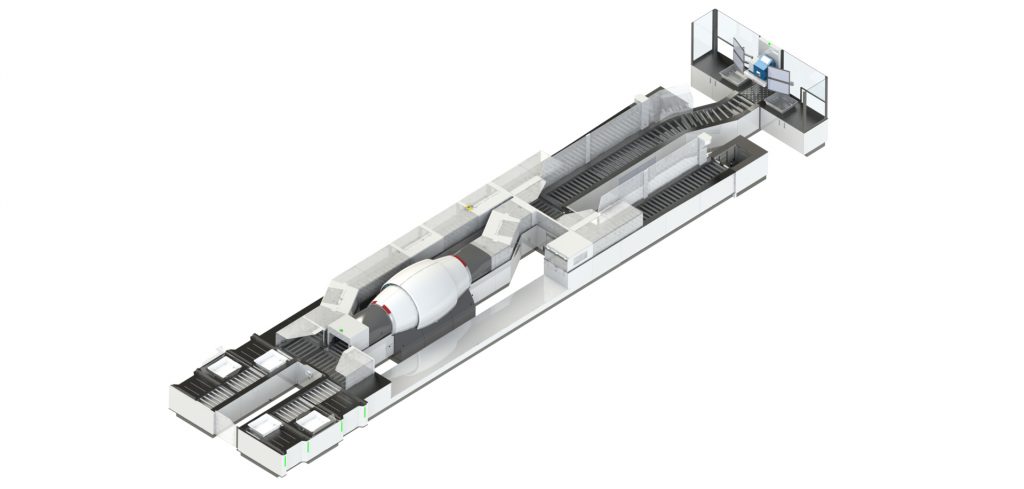Netherlands-based process and automation specialist Vanderlande has launched its latest airport passenger checkpoint solution – PAX MX2 – a dual-lane screening concept which it claims improves performance, reduces the required footprint and optimizes resources compared with existing systems.
In response to the global airport requirement for increased checkpoint capacity, while factoring in space and human resource limitations, Vanderlande has developed PAX MX2 to help airport operators optimize their equipment and capex in an environment where new and advanced technologies – such as CT screening – are making their way to checkpoint areas.
With its dual-lane design, PAX MX2 is stated to deliver the efficiency of two conventional automated screening lanes of the same length by allowing passengers to divest and collect their belongings on either side of the screening machine. By increasing the throughput in these areas, the system allows for the CT scanner to work at full capacity while using minimal floor space and allowing for efficient use of staff.
A first prototype of the PAX MX2 system has been installed in Vanderlande’s facility in Santpedor, Spain, and the company says it already shows promising results. Designed to be integrated with the PAX Multiplex screening software, the solution is expected to reach a throughput of 400 passengers per hour.
“Airports are continually looking for ways to reduce their expenditure, increase their return on investment, and guarantee a positive passenger experience,” commented Vanderlande executive vice president, airports, and board member Andrew Manship. “This is especially true in these challenging times. However, we’re confident that PAX MX2 will allow us to offer additional support to our customers and partners, helping them to achieve their goals and make their checkpoints future-proof.”

